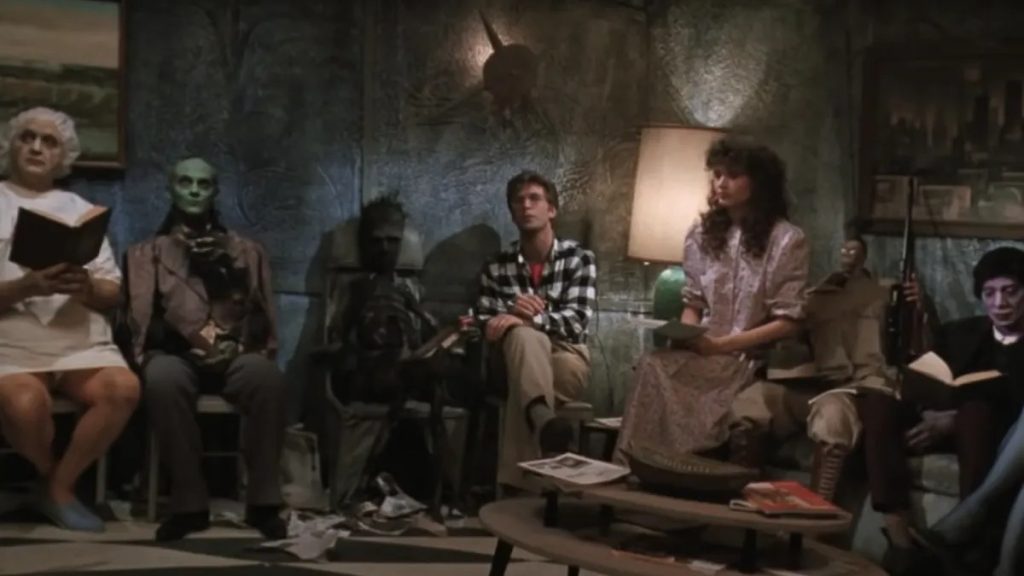Question: Hi there! Are there any former converts affiliated with Behold The Faith? I am curious if any of you struggle with the Catholic doctrine of Purgatory. I am trying to send something to my wife about it since it’s a barrier for her (she was raised nominally Baptist).
————————————
Answer: I struggled until I saw Purgatory as a purification process. Purgatory no longer became a struggle for me when I realized that Lutherans and Anglicans pray for peace for the dead and when I realized that Purgatory wasn’t a place (like in Beetlejuice, although I love that movie!). It is a process.
One thing fundamentalists always seem to ask is, “Where is the word Purgatory found in Scripture?” While it is true that it is not, this does not disprove the existence of Purgatory or the fact that belief in it has always been part of Church teaching. Trinity and Incarnation aren’t in Scripture either, yet those doctrines are clearly taught in it.
Christ refers to the sinner who “will not be forgiven, either in this age or in the age to come” (Matt. 12:32), suggesting that one can be freed after death of the consequences of one’s sins. Similarly, St. Paul tells us that, when we are judged, each man’s work will be tried. And what happens if a righteous man’s work fails the test? “He will suffer loss, though he himself will be saved, but only as through fire” (1 Cor 3:15). Now this loss, this penalty, can’t refer to consignment to hell, since no one is saved there; and heaven can’t be meant, since there is no suffering (“fire”) there. The Catholic doctrine of Purgatory alone explains this passage.
Fundamentalists have countered, that “Scripture clearly reveals that all the demands of divine justice on the sinner have been completely fulfilled in Jesus Christ. It also reveals that Christ has totally redeemed, or purchased back, that which was lost. The advocates of purgatory (and the necessity of prayer for the dead) say, in effect, that the redemption of Christ was incomplete. . . . It has all been done for us by Jesus Christ, there is nothing to be added or done by man.”
It is entirely correct to say that Christ accomplished all of our salvation for us on the cross. But that does not settle the question of how this redemption is applied to us. Scripture reveals that it is applied to us over the course of time through, among other things, the process of sanctification through which the Christian is made holy. Sanctification involves suffering (Rom. 5:3–5), and purgatory is the final stage of sanctification that some of us need to undergo before we enter heaven. Purgatory is the final phase of Christ’s applying to us the purifying redemption that he accomplished for us by his death on the cross.
The love of God, a fire that purifies all our flaws, makes Purgatory a necessary step. If the damned burn and tremble in the presence of God, it makes sense that those who made it to heaven yet had an attachment to sin would be cleansed by His love and presence. I later understood it as ‘you need to be 100% clean to enter heaven’, and so Purgatory exists because of God’s Mercy.
For more, here’s a list of resources to help you get started:
- Catholic Answers: What is Purgatory?
- Catholic Answers: Is purgatory like hell?
- Catholic Answers: What the Bible Says About Purgatory
- Catholic Answers: The Logical Case For Purgatory
- Shameless Popery Podcast: Answering Protestant Objections to Purgatory
Hope this helps!
————————————
G. K. Chesterton, the British writer best known in the U.S. for his fictional priest-detective Father Brown stories, explained in his 1926 essay Why I Am a Catholic:
“It is impossible to be just to the Catholic Church. The moment men cease to pull against it, they feel a tug toward it. The moment they cease to shout it down, they begin to listen to it with pleasure. The moment they try to be fair to it, they begin to be fond of it.”
Chesterton astutely described the Catholic Church as “larger on the inside than it is on the outside.” Indeed, as a convert to Roman Catholicism from Anglicanism, no one understood this better than him.
The best way to deepen our understanding of Catholicism is to ask questions. Yet, even many cradle Catholics are afraid or too embarrassed to ask questions.
Is there something about the Church you would like to ask anonymously? Get personal, confidential assistance with your questions about the Catholic faith.
————————————


